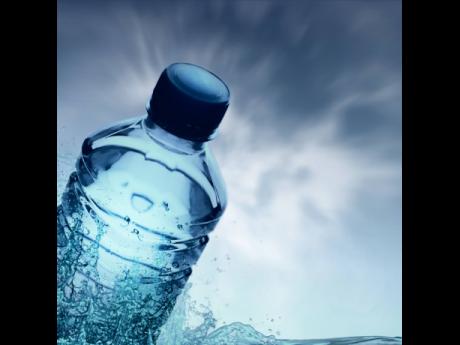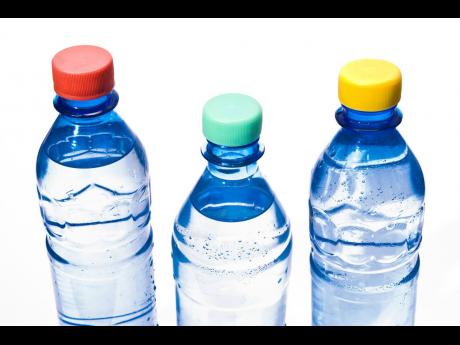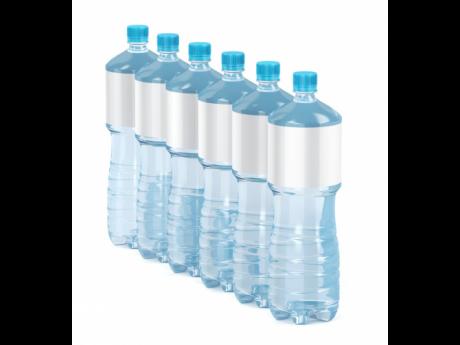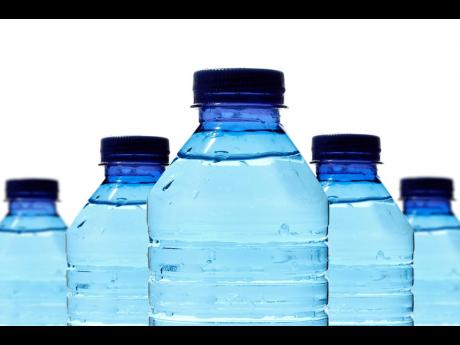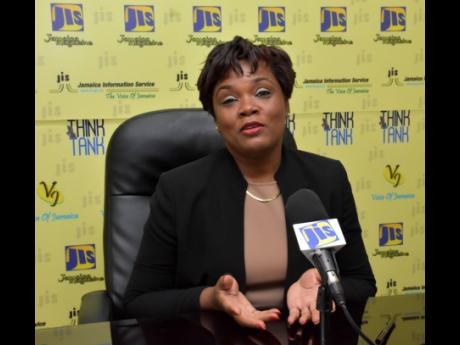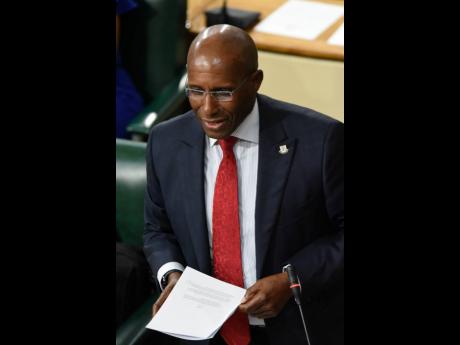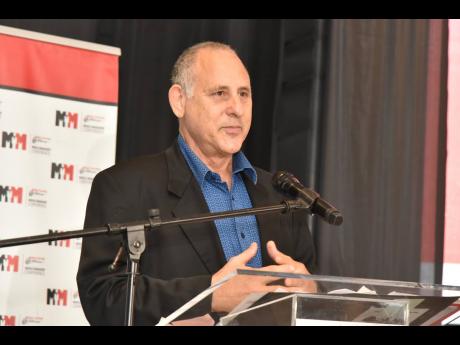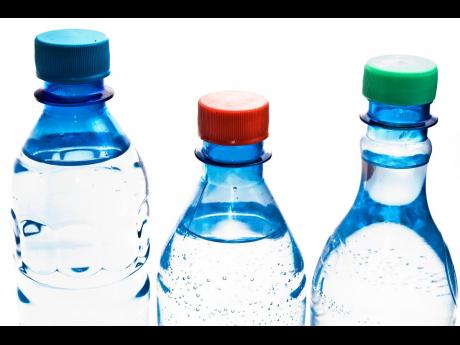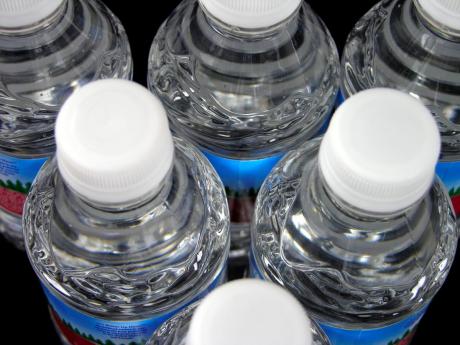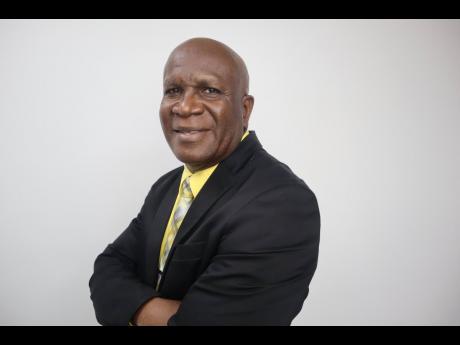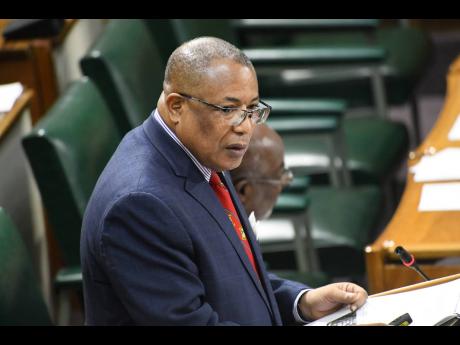Coconut and bottled water concerns
• Samples from several products on the market fail to meet minimum standards • Regulatory bodies at odds over safety of products for consumption
There are mixed signals on whether some brands of bottled coconut water and bottled water now on the market are safe to consume, because, almost three months after concerns were raised, a government watchdog is yet to provide information on...
There are mixed signals on whether some brands of bottled coconut water and bottled water now on the market are safe to consume, because, almost three months after concerns were raised, a government watchdog is yet to provide information on products that are failing to meet minimum standards.
In September last year, alarm bells went off over failed test results from samples of bottled coconut water and bottled water that were supplied by the National Compliance and Regulatory Authority (NCRA) to the Bureau of Standards Jamaica (BSJ) for testing.
Internal data suggests that the water and coconut water samples returned a failure rate of between 25 and over 70 per cent. In August, of the 10 samples examined per product, three failed.
For September, the failure rate was also 30 per cent, while, for November, more than 70 per cent of the samples failed to meet the basic minimum standards, multiple sources have reported. The figure for October is unclear.
The Jamaican standards for bottled coconut water and bottled water specify requirements for the purity, treatment, bacteriological acceptability, packaging and labelling.
The lab tests cover, among other things, the total aerobic plate count, which captures the bacterial load in each sample; total faecal coliform count; E. coli and yeast and mould count.
“The outcome of the test results for the period August 2022 to November 2022 elicited a cause for concern,” noted chairman of the BSJ Standards Council, Wilfred Baghaloo, confirming that, in September, the council became aware that some samples were failing to meet the standards.
The NCRA reportedly rejected initial concerns raised by BSJ officials, which forced the call for a comprehensive report and audit.
Following the discovery by The Sunday Gleaner probe, the NCRA, which monitors and enforces standards set by BSJ, was asked if there was cause for concern with the products on the market. In response, it declared that it was satisfied that members of the public were consuming healthy and safe bottled coconut water and bottled (packaged) water.
However, there was no such definitive pronouncement from the BSJ, which conducted the tests.
When asked a similar question, the BSJ said: “we await the findings of the audit requested in order to initiate further actions as is necessary and within our scope of operation.”
‘ALARMING, DISGRACEFUL AND UNTENABLE’
“Even one failure is a major cause for concern because these are products people ingest. This is not a case of labelling where we may overlook it,” said a government official with knowledge of the situation.
“This has been building and it’s frightening that the NCRA was not more alert. Its job is to monitor and protect the public.”
The high-ranking official, who was not authorised to speak on the matter, noted “You cannot have two of our agencies in which the public should have confidence not being clear on whether a product should be consumed. This is alarming, disgraceful and untenable.”
Presented with the findings of The Sunday Gleaner investigation, an angry Holness-administration official said the NCRA has been “profoundly derelict in dragging its feet on a life-and-death matter”.
This is the latest troubling development emerging out of the Dr Lorice Edwards-Brown-led NCRA, formerly the regulatory division of the BSJ, and whose journey to being established in law remains incomplete six years into its operation.
Both entities are based in the Aubyn Hill-run Ministry of Industry, Investment and Commerce, which has been forced into damage-control mode over this newspaper’s revelations on the NCRA’s release of substandard rice for a company linked to a Cabinet minister and the lack of urgency on damning findings on the quality of building blocks in 2022.
The NCRA’s advisory board, led by attorney Stephanie Sterling, has maintained public silence on the issues.
‘HIGH RISK’
At an October 26 meeting of the BSJ’s council, eight points were raised requiring action from the BSJ’s Executive Director Dr Velton Gooden and the NCRA boss with regards to an “issue” with bottled coconut water and bottled water, according to the document obtained by The Sunday Gleaner.
The NCRA head is a member of the council which also includes Dolsie Allen, the CEO of the Consumer Affairs Commission.
The council flagged the issue as “high risk”.
Among the eight points were: a request for a comprehensive report on the type of tests performed on bottled coconut water and bottled water; test results; the current situation; and how to improve the regulatory framework.
As the testing agency for clients such as the NCRA, the BSJ would tackle questions on the nature of tests.
The NCRA was also asked to outline specific actions taken regarding failed test results, as well as indicate when it first discovered the issue with bottled coconut water and bottled water, which covers natural mineral water, spring water and purified water.
Baghaloo confirmed that Edwards-Brown did not submit the report that was expected for November 15 and for discussion at a November 23 meeting where members reportedly expressed ‘disappointment’ at the presentation from the NCRA head.
The BSJ council then made a request in November for an audit, which Edwards-Brown claims the NCRA was not “averse to”, when asked to confirm reports that she rejected an initial request.
Internal auditing is among the corporate services, such as human resource management, shared between the NCRA and the BSJ.
HEALTH RISK TO CONSUMERS
Food technologist Debbie-Ann Phillips said there will be some trace of bacteria in most foods but health risks are greater for consumers of products that fail to meet minimum standards.
“The consumer can get sick, like vomiting, diarrhoea and [there] also may be death,” she said.
The NCRA head did not provide details requested by The Sunday Gleaner on the number of bottled coconut water and bottled water manufacturers whose products failed quality tests.
On the question of actions taken against failing producers, she pointed to the Standards Regulation which indicates that, if a product does not satisfy a compulsory standard specification, another sample should be tested.
“The NCRA resampled and the resampled products met the specification,” Edwards-Brown insisted.
CAUSE FOR CONCERN
The NCRA’s method of determining samples has been a source of major concern for its own staff, as well as the BSJ’s.
It played out at the contentious November 23 council meeting where members could not determine a series of details, including the locations where the samples were taken to establish whether they were nationally representative.
Members were also reportedly offended that they could not get identification details on the manufacturers, especially given the likely serious health implications involved.
An audit, whose deadline was not provided, should not be a problem, said John Mahfood, president of the Jamaica Manufacturers and Exporters Association, which represents some of the country’s largest producers.
He said his members have not reported any concerns.
However, Mahfood noted, because of the local preference for natural coconut water over the processed beverage, issues about its quality emerge as producers have to sell the products quickly, given the shorter shelf life, unless the drink is frozen to extend its life.
“Because of the relatively short shelf life, I find, as a consumer, inconsistency in the quality of the water that is on display and bought. And, even to the extent of finding that the water is off before the expiration date. I think there is cause for concern … there probably is room for tighter regulations,” Mahfood told The Sunday Gleaner.
‘INHERENT CONFLICT OF INTEREST’
A 2015 Cabinet decision under the Portia Simpson Miller administration resulted in the regulatory division of the BSJ turning into the NCRA, in accordance with the World Trade Organization/Technical Barriers to Trade Agreement, which highlighted an “inherent conflict of interest” in the BSJ establishing and regulating its own standards.
The intention was for the NCRA to be established in law but that remains unfulfilled with no update from Aubyn Hill’s ministry on why, although Anthony Hylton, who was minister when the decision was made, said other pressing legislative issues may have impeded successive ministers when the ruling Jamaica Labour Party took power in March 2016.
Hill took over from Audley Shaw in January 2022. Shaw took the baton from Karl Samuda in 2018.
“Seven years is a long time … government has to do a better job in strengthening those departments so that critical pieces of legislation such as this is for consumer protection have to be considered essential and urgent …” said the opposition spokesman on industry.
Dr Lorice Edwards-Brown, who held a stint at the Financial Services Commission as director of investigation and enforcement, has been head of the NCRA since it started operations in January 2016.
Issues with inspection and testing predated her tenure.
A November 2016 report by the Auditor General that looked at the period 2013-2016 found “monitoring activities mainly focused on conformance with labelling standards” and little on the mandate to test and inspect products in the domestic market and ports of entry.
The report also noted that there was limited testing of products for conformance with quality standards and therefore the regulator had “limited assurance that products in the marketplace meet the required established standards”.
The BSJ attributed the problems then to a lack of the requisite equipment and inadequate financial resources but said then that it was taking proactive steps to acquire the necessary equipment under a World Bank Strategic Public Sector Transformation Project.
‘NOT YET’
“Not yet,” Edwards-Brown responded to The Sunday Gleaner on whether all the issues raised in the auditor general’s report have been addressed. “There is continuous process improvement to address the recommendations.”
A response has been sought from the Ministry of Health and Wellness on whether it has any public health concerns arising from the bottled coconut water and bottled water issue.
The portfolio minister is Dr Christopher Tufton, the sole shareholder of Blue Zone, a company whose substandard shipment of rice last July was released on the same date the adverse test results were returned.
Edwards-Brown is yet to explain why she authorised the release of the substandard shipment which was later reclassified and allowed on the market.
The industry ministry, which has also not answered questions from The Sunday Gleaner on the actions of the NCRA head, has since announced a “comprehensive review” of the rice importation regime.
The NCRA is also under scrutiny after a Sunday Gleaner probe brought to light a July internal assessment that called for “urgent attention” to the situation of manufacturers selling building blocks that did not meet the minimum requirement for bearing load.
The document examined samples of concrete hollow blocks for the period February to June 2022. It showed that, from a total of 136 samples taken from 109 block manufacturers across 12 parishes, only 59 samples met the required minimum compressive strength, returning a non-compliance level of 57 per cent.
In July, a Sunday Gleaner probe tested for coliforms on 10 randomly selected brands of bottled water sold in Jamaica. The results of the test, conducted by the research lab at the Northern Caribbean University, found that the samples did not have any trace of coliforms, which would have indicated faecal contamination.
POINTS RAISED BY BSJ COUNCIL ON OCTOBER 26, 2022 TO NCRA:
a) Prepare and present a comprehensive report on the type of tests performed on coconut water and bottled water; the test results on coconut water and bottled water.
b) What is the current situation? What is the course or courses of action to resolve any issues with the products that have not passed the Standard Specification?
c) What is the current protocol?
d) Are they being maintained?
e) Are there recommendations on how to improve said protocols and what are these recommendations?
f) What were the specific actions taken by the NCRA regarding the failed test result in coconut water and bottled water?
g) When did the NCRA first discover the issue with coconut water and bottled water?

